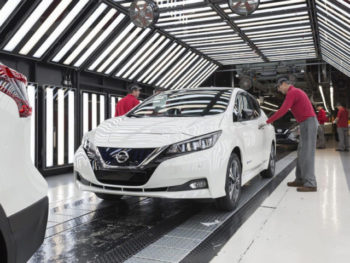No-deal Brexit to bring ‘far-reaching impacts’, says European auto industry
Failure to strike a Brexit deal could see new car prices rocket while also massively disrupting the manufacturing process.
That’s the message from Europe’s auto manufacturers and suppliers, which say a no-deal scenario – which would see the UK automatically switch to World Trade Organization (WTO) trade rules – would “threaten their very business model”.
Outlining how it’s not too late to reach a withdrawal deal, the European Automobile Manufacturers Association (ACEA) has warned how WTO rules would require a 10% tariff be applied to all cars traded between the EU and the UK – which could be passed on, either fully or in part, to buyers.
Erik Jonnaert, secretary general of the ACEA, said: “We cannot forget that profit margins in our industry are significantly lower than 10%. At the end of the day, these extra costs will either be passed on to the consumer or will have to be absorbed by the manufacturers.”
His comments follow a similar warning from the UK’s Society of Motor Manufacturers and Traders (SMMT), which has said the implementation of import tariffs on light vehicles would add £5bn (€5.68bn) to the collective EU-UK auto trade bill. This would see UK buyers of a new car from the EU hit by an extra £1,500 (€1,704) cost if passed on by the manufacturer, while a new van from the EU could go up by £1,700 (€1,932).
But border delays or obstacles to parts deliveries could also disrupt the production process and generate significant costs; the ACEA points out that every day 1,100 EU trucks cross the Channel to deliver to car and engine plants in the United Kingdom alone.
Although carmakers are already making contingency plans and are looking for warehouse spaces to stockpile parts, the organisation warns that the space required to stockpile for more than a short time would be absolutely huge – and expensive.
And the ACEA also said that some manufacturers are planning a temporary post-Brexit production shutdown.
Jonnaert added: “But the harsh fact is that no amount of contingency planning can realistically cover all the gaps left by the UK’s withdrawal from the EU on WTO terms.
“The clock is ticking, but it is not yet too late. That is why we are urging the negotiating teams on both sides to redouble their efforts to successfully conclude a withdrawal deal,” he underlined.


